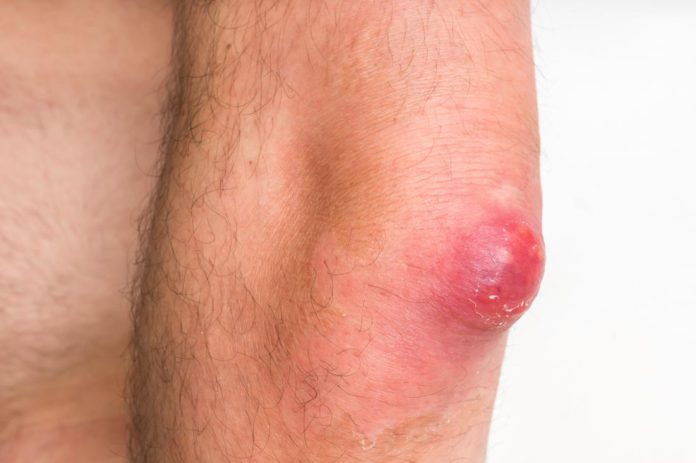They can grow to an unbelievable size when wrongly popped with a needle or pin, thus making the area surrounding the skin red and painful.
Boils are pus-filled bumps that form under the skin and are caused by bacteria that infect and then inflame hair follicles.
Beginning as painful red bumps that develop a pus-filled head as they progress, boils usually develop in regions of the body that experience friction or pressure, such as the face, armpits, groin, shoulders, and buttocks.
However, the safest and easiest to remove a boil, according to dermatologists, is to use a warm compress to speed up the natural drainage process. And this is because warmth helps increase the pressure in the infected pore as it slowly draws pus and blood to the surface of the skin.
That being said, we shall proceed with some of the home remedies for boils
Here are five home remedies for getting rid of boils in no time:
1. Onion and fresh garlic
When using onion for boils, cut the onion in a thick slice, wrapped in gauze and placed over the boil or wound for one hour once or twice daily. However, if you’re using garlic, pressed and the extracted juice applied to boil or wound for 10 to 30 minutes once or twice daily.
2. Turmeric powder
Turmeric powder has both antibacterial and anti-inflammatory properties, both of which can help heal a boil and get rid of it quickly. It’s been used as a natural blood purifier for thousands of years in eastern medicine as a result.
You can choose to ingest turmeric powder, use it topically to treat boils or both.
To ingest it, boil a teaspoon of turmeric powder in water or milk, and drink it three times daily once cooled. To use it topically, mix turmeric with water and/or ginger to make a paste, and apply it to the boil at least twice a day.
3. Apply warm
Applying warm water is one of the oldest home remedies for boil: compresses and soak the boil in warm water. This will decrease the pain and help draw the pus to the surface.
Once the boil comes to a head, it will burst with repeated soakings. This usually occurs within 10 days of its appearance.
However, you can make a warm compress by soaking a washcloth in warm water and squeezing out the excess moisture.
When the boil starts draining, wash it with an antibacterial soap until all the pus is gone and clean with rubbing alcohol.
Apply a medicated ointment (topical antibiotic) and continue to wash the infected area two to three times a day and to use warm compresses until the wound heals.
4. Tea tree oil
Although the tea tree essential oil is that popular in this part of the world, it still doesn’t change the fact that it has strong antibacterial and antiseptic properties, which can help to treat the bacterial infection causing the boil. Tea tree oil should not be applied directly to the skin, as it can have a burning effect.
ALSO READ:
Mix five drops of tea tree oil with a teaspoon of coconut or olive oil. Put diluted tea tree oil on a cotton swab it and apply it to the area two or three times per day. Do this daily until the boil is completely gone.
5. Castor oil
Various studies have shown that castor oil contains a compound called ricin-oleic acid, which is a natural but potent anti-inflammatory. This, combined with its powerful antibacterial properties, make it a great natural treatment for boils.
When using castor oil, apply a small amount of castor oil directly to the boil at least three times a day until the boil is gone.

